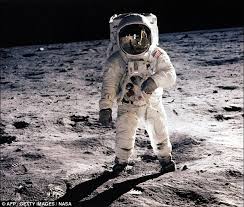
Breaking News
 Brand New Solar Battery With THIS Amazing Feature! EG4 314Ah Wall Mount Review
Brand New Solar Battery With THIS Amazing Feature! EG4 314Ah Wall Mount Review
 This New Forecast Just Got WAY Worse...
This New Forecast Just Got WAY Worse...
 S3E4: The Freedom Movement Funded Its Own Prison
S3E4: The Freedom Movement Funded Its Own Prison
 Dan Bongino Gets DESTROYED By Dave Smith & Ducks Debate!
Dan Bongino Gets DESTROYED By Dave Smith & Ducks Debate!
Top Tech News
 The day of the tactical laser weapon arrives
The day of the tactical laser weapon arrives
 'ELITE': The Palantir App ICE Uses to Find Neighborhoods to Raid
'ELITE': The Palantir App ICE Uses to Find Neighborhoods to Raid
 Solar Just Took a Huge Leap Forward!- CallSun 215 Anti Shade Panel
Solar Just Took a Huge Leap Forward!- CallSun 215 Anti Shade Panel
 XAI Grok 4.20 and OpenAI GPT 5.2 Are Solving Significant Previously Unsolved Math Proofs
XAI Grok 4.20 and OpenAI GPT 5.2 Are Solving Significant Previously Unsolved Math Proofs
 Watch: World's fastest drone hits 408 mph to reclaim speed record
Watch: World's fastest drone hits 408 mph to reclaim speed record
 Ukrainian robot soldier holds off Russian forces by itself in six-week battle
Ukrainian robot soldier holds off Russian forces by itself in six-week battle
 NASA announces strongest evidence yet for ancient life on Mars
NASA announces strongest evidence yet for ancient life on Mars
 Caltech has successfully demonstrated wireless energy transfer...
Caltech has successfully demonstrated wireless energy transfer...
 The TZLA Plasma Files: The Secret Health Sovereignty Tech That Uncle Trump And The CIA Tried To Bury
The TZLA Plasma Files: The Secret Health Sovereignty Tech That Uncle Trump And The CIA Tried To Bury
Moon Landings Are Back in Style, and Other Space Trends of 2017

It's impossible to predict how 2017 will shake out in full, but one thing is for certain—it will be another remarkable year for space science. Read on for Motherboard's preview of the most momentous launches, missions, and celestial events to look forward to over the next 12 months, from the maiden flight of a colossal rocket to the swan song of Saturn's workhorse orbiter.
On August 21, 2017, skywatchers in the continental United States will be treated to a total solar eclipse for the first time since 1979. When the Moon passes in front of the Sun that Monday, it will cast a 70-mile-wide moving shadow, called the "path of totality," that will travel from Oregon to South Carolina in 94 minutes. North Americans who don't fall under the direct route of the occultation will still get to enjoy partial eclipses, depending on the latitude.

 Nano Nuclear Enters The Asian Market
Nano Nuclear Enters The Asian Market


